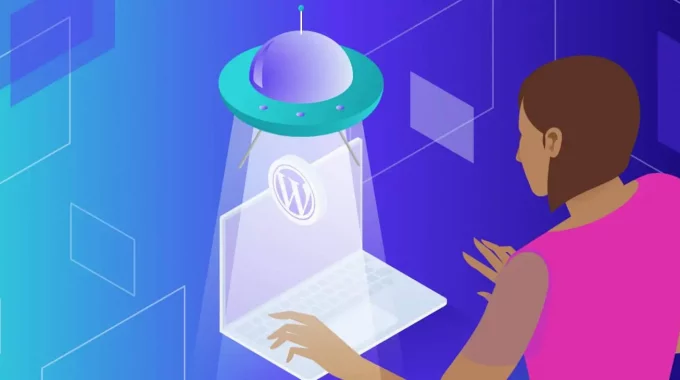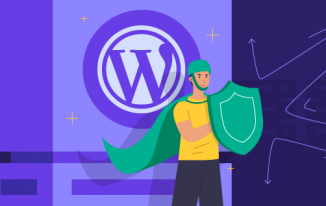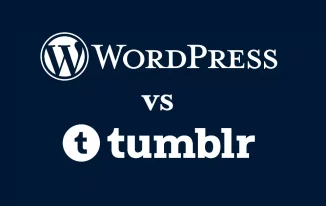Now more than ever, businesses must build their websites. The issue is that the majority of business owners lack the time necessary to create a website from scratch, let alone learn how to code. Tools for constructing websites can help with this.
Nearly 40% of all publicly accessible websites utilize WordPress, making it the most widely used website construction tool. For its scalability, ease of setup, and low cost, the WordPress content management system is highly known.
However, as the majority of users will attest, WordPress is far from ideal. There are a few frequent WordPress challenges you should be aware of before beginning your building project. You'll be able to launch more swiftly and with fewer headaches if you are better equipped to handle these WordPress challenges.
Launching a WordPress Website
By clicking here, you can download a free copy of the tutorial and checklist for setting up a WordPress website.
Let us look at the six most common WordPress challenges and their solutions.
1. Securing vulnerabilities
A successful website hack is the worst thing that could happen to your online business. Customers may stop trusting you, you may have to spend time and money cleaning up the mess, and you may even run afoul of the law if personal data is stolen or released.
Unfortunately, security concerns arise frequently while using WordPress, making them the most crucial pre- and post-launch consideration for your website. Hackers frequently attack WordPress websites for the following reasons:
- Since WordPress is open-source, anyone can view and discover security flaws in all of its core code files, plugins, and theme files.
- The majority of WordPress add-ons are created by outside companies. The absence of quality assurance has resulted in themes and plugins with security flaws.
- WordPress is used by novice website owners who frequently lack cybersecurity knowledge. Because of this, hackers specifically target their websites.
The WordPress development team is rigorous in identifying and fixing security flaws, thus the WordPress CMS is extremely secure on its own.
Rather, hackers usually target websites that have
- outdated WordPress installations
- vulnerable plugins and themes. As a result, websites that haven't received an update in a while, as well as those that have plugins or themes that were badly written, are particularly vulnerable.
Things you can do
There are a few best practices you should adhere to safeguard your WordPress website against security threats:
- Whether manually updating it or letting WordPress do it for you, always keep your installation current. Although it seems simple, Sucuri reports that in 2021, more than half of WordPress installations were out of date.
- Install a security plugin for WordPress like Wordfence or Sucuri because your website will be more secure with the assistance of these plugins.
- Use strong passwords and other usernames other than "admin" when logging in. Consider using two-factor authentication and updating your password regularly.
- Installing plugins and themes is only advised if they have been thoroughly tested and come from reliable sources. Before turning them on for your website, check to determine if there are any known security vulnerabilities.
- On your website, make sure SSL/TLS encryption is always enabled.
You may contribute to the security of your site by adopting these easy safeguards and the WordPress challenges will be limited.
2. Performs slowly
Poor website performance, or lengthy loading times, is another to the list of WordPress challenges that new site owners deal with.
Everyone is aware of how annoying a slow website can be. It's well accepted in the business that users will get impatient, even on mobile devices, if they have to wait more than three to five seconds for their information to load. Particularly if it's their first visit to your site, a sizable portion of visitors will probably switch to one of your competitors.
Additionally, loading time is a proven Google ranking criterion for both desktop and mobile devices. This means that faster websites have a better chance of ranking higher in Google search results and, most likely, other search engines as well. On the other hand, slower websites suffer from this and are demoted in search results, which is not where you want to be.
Amongst the many WordPress challenges, one is faced for being slow, and the typical causes are plugins with poor coding, having too many installed, using inefficient hosting, or having a content database that is overstuffed with unnecessary files. All of these elements make it more difficult for your website to handle visitors, especially on slower internet connections.
Things you can do Not sure how well your WordPress website functions?
Use a free tool like Website Grader to test the speed of your website. A tool like this will tell you if your website is loading quickly enough to keep visitors and will make ideas for improvement.
Sometimes all it takes to drastically improve performance is to move to a faster WordPress hosting provider. Installing a caching plugin is another simple method that will enable you to save copies of your pages and articles for faster loading. Other solutions include employing a WordPress content delivery network or using fewer plugins than you already do (CDN).
Your visitors will appreciate you for improving the loading speed of your WordPress website by converting at a higher rate.
3. Do-It-Yourself Product
Many website builders today let you join up, make a few visual adjustments, add content, and launch your site; the platform takes care of the rest. Not one of these platforms is WordPress.
In actuality, the WordPress CMS is a rather basic platform with few capabilities. The major advantage of WordPress is its customizability, which lets you add whatever themes and plugins you desire.
You are responsible for managing the back-end functioning of their website in addition to adding content and designing it. This involves preferring a functional theme and adequate hosting, as well as plugins for analytics, marketing, security, SEO, and page builders.
In conclusion, using WordPress may not require any coding knowledge, but it still requires a significant lot of labor if you want anything more complex than a simple publishing website.
What you can do: It has a less obvious explanation and is more of an outcome of operating with WordPress. If you want a good WordPress website for a low price, you'll have to put in more effort.
There are also WordPress choices that do the additional heavy lifting and may be more relevant for your objectives. CMS Hub comprises hosting, sophisticated marketing tools, and security measures.
4. Over-Reliance on Plugins
When it comes to plugins, there are approximately 60,000 free and paid WordPress plugins to choose from. This will stimulate you to add multiple plugins to deal with every imaginable function on your site, which is reasonable.
While plugins are quite useful in WordPress, they can also pose issues if not used correctly. To begin with, plugins are one of the most common security flaws on WordPress websites. A hacker's entry point into your website is poorly created and outdated plugins, and the more plugins you have installed, the more probable one of them is open to attacks.
What you can do: Once it comes to plugins, it's critical to strike a balance and only use the s that are necessary for your site to function. Before installing a new theme or plugin, always test it on a staging site to determine if it is compatible with your current setup.
It's also a good idea to check through your plugins and uninstall any that you no longer need.
5. Confusing errors
Any website operator will see error warnings from time to time, but WordPress is known for producing several that could deter potential site owners. Moreover, unless you pay for premium assistance from your hosting provider, it's unlikely that you'll be able to speak with someone to help you fix your problem.
WordPress' challenge frequently faced is the white screen of death and the name is a touch dramatic, but any downtime on a website might affect sales and conversions later on. A conflict between a plugin or theme, a problem with your hosting server, or a corrupt database are just a few of the possible causes of this error.
Memory limit difficulties, internal server faults, and connection timeouts are also common. WordPress will frequently inform you of the error, but not where it originated or how to correct it.
What you can do: Expect to make at least a few mistakes when putting up your website. They're inconvenient, but they almost always have a solution. Almost every error you encounter has already been addressed, and you can search online for clues and troubleshooting instructions.
6. Unexpected Costs
Yes, technically, anyone may download and use the WordPress CMS software for free. There are some costs to using the platform that you may not be aware of if you desire a completely free event.
Here are some expenses to expect while starting and sustaining a WordPress site:
- premium themes and plugins
- domain name
- security protections
- hosting
- designer/developer costs
The cost of a WordPress site is determined by how much you are willing to invest in paid features.
What you can do: This is a very basic one. While the "free" part of the WordPress platform is enticing, keep in mind that you will eventually need to open your wallet.
Is WordPress worth the time and effort?
The truth is that an ideal software tool does not exist and you are likely to face challenges. In our case, it’s the WordPress challenges. There will always be drawbacks and trade-offs with whatever site builder or CMS you select for your online business.
Despite its flaws, WordPress is still the CMS platform king, and for good reason: it's inexpensive, intuitive, accessible, and user-friendly. Furthermore, the majority of the WordPress challenges we've discussed are simply avoidable if you know what to do when you encounter them.





